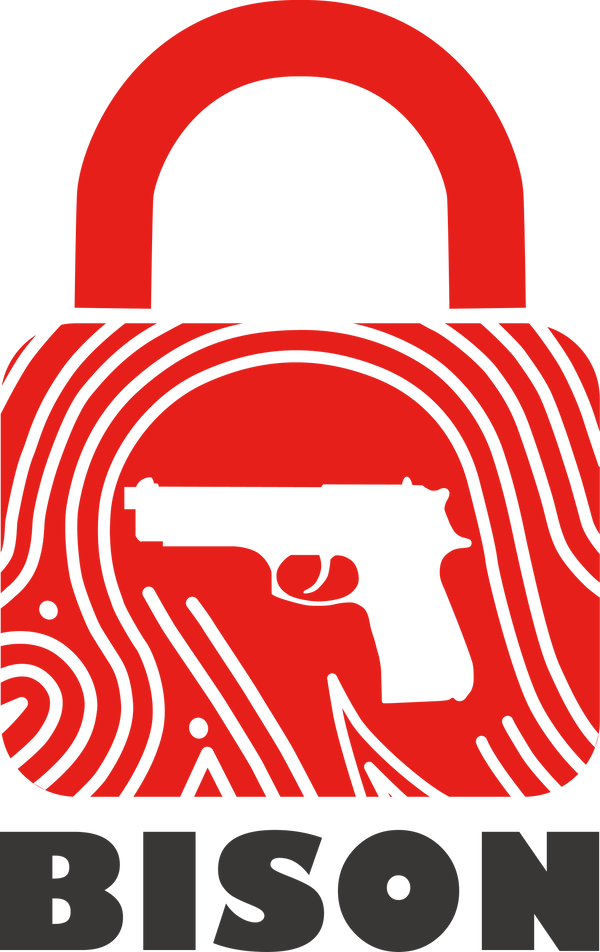Owning a firearm is a significant responsibility, and ensuring its secure storage is paramount. To prevent accidents and misuse, a gun lock is an essential safety device. Choosing the right gun lock can protect your family and comply with relevant laws and regulations. Here are the key factors to consider when purchasing a gun lock.
1. Types of Locks
Cable Locks
Cable locks typically consist of a steel cable and a lock mechanism, which can be threaded through the gun's loading or magazine port to prevent loading. They are versatile and suitable for various types of firearms. When using a cable lock, ensure the cable's length and diameter are appropriate to secure the firearm without causing damage.
Trigger Locks
Trigger locks cover the gun's trigger to prevent it from being pulled. They are commonly used for handguns and rifles but must fit properly. Trigger locks come in mechanical and electronic versions, with mechanical locks using keys or combination codes and electronic locks using fingerprint recognition or electronic codes.
Gun Safe Locks
Gun safe locks are designed for storing multiple firearms, typically used in homes or clubs. They offer higher security levels, preventing unauthorized access. Modern gun safes often feature dual locking mechanisms, such as key locks combined with electronic keypads, and some high-end safes offer fire and water resistance.
Trigger Guard Locks
Trigger guard locks are simple and easy-to-use devices that attach directly to the trigger guard, preventing the trigger from being pulled. These locks usually use a key or combination code to secure and are suitable for short-term storage and transportation.
2. Material and Quality of the Lock
Choosing a high-quality lock is crucial. Locks made from premium steel and sturdy locking mechanisms can effectively resist tampering and prying. Select well-known and certified brands ,such as Bison, to ensure durability and reliability.A high-quality gun lock should be durable enough to withstand long-term use and various environmental conditions. Choosing metal materials treated for corrosion resistance, such as stainless steel or galvanized steel, can effectively prevent rust and damage.The lock should be designed to resist brute force attacks and technical tampering. Many high-end locks use complex lock mechanisms and thicker steel to increase resistance to tampering. When purchasing, check the lock’s anti-tampering rating and choose products that meet standard requirements.
3. Ease of Use
The lock should be as simple and quick to use as possible. In emergencies, being able to unlock quickly is crucial. Therefore, selecting locks that are easy to operate can reduce safety risks due to complicated procedures.Quick unlocking can be life-saving in emergencies. Choose locks that are simple to operate and quick to unlock, such as those with fingerprint recognition or fast code entry, to enhance efficiency.The lock should be straightforward to install and use, avoiding complex procedures. This is particularly important for older adults or those with less hand strength, making it easier for them to handle and install the lock.
4. Compatibility with Firearms
Ensure that the lock you choose is compatible with your firearm model. Different types and models of firearms may require different specifications of locks. Before purchasing, carefully read the product description to confirm that the lock fits your firearm.Some locks are designed to be more universal, suitable for different types and models of firearms, such as cable locks. Others are specifically designed for certain firearm models. Choose a lock based on the types of firearms you own to ensure optimal compatibility and safety.
5. Legal Requirements
Different countries and regions have various laws and regulations regarding firearm storage. When buying a gun lock, you should understand and comply with local laws to ensure that the lock you purchase meets the requirements and avoids legal risks.
Before purchasing, familiarize yourself with the firearm storage laws and regulations in your area. Choose locks that meet these requirements. Some regions may mandate that firearms be stored in gun safes with dual locking mechanisms, while others may allow the use of cable locks or trigger locks.
Some insurance companies have specific requirements for firearm storage, which may necessitate using particular types of gun safes or locks. Ensure the lock you purchase meets your insurance company's requirements to avoid issues when filing a claim.
6. Additional Features
Some advanced gun locks offer extra features, such as anti-tampering alarms and biometric recognition, providing higher levels of security. These features are suitable for users needing higher safety standards.
Anti-Tampering Alarms:Locks with anti-tampering alarms can alert users or those nearby when illegal tampering occurs, enhancing security.
Biometric Recognition:Biometric technologies, such as fingerprint recognition, provide a more convenient and secure unlocking method, avoiding risks associated with lost keys or stolen codes.
Fire and Water Resistance:Some high-end gun safes and locks offer fire and water resistance, protecting firearms from damage during fires or floods. These features are especially important for long-term storage or users living in disaster-prone areas.
Purchasing a gun lock is an important decision directly impacting the safety of your family and others. When choosing a lock, consider the type, material, ease of use, compatibility, legal requirements, and additional features. Careful evaluation and selection ensure the gun lock you purchase can effectively prevent accidents while meeting your needs. Safely storing firearms is a responsibility and duty of every firearm owner.
